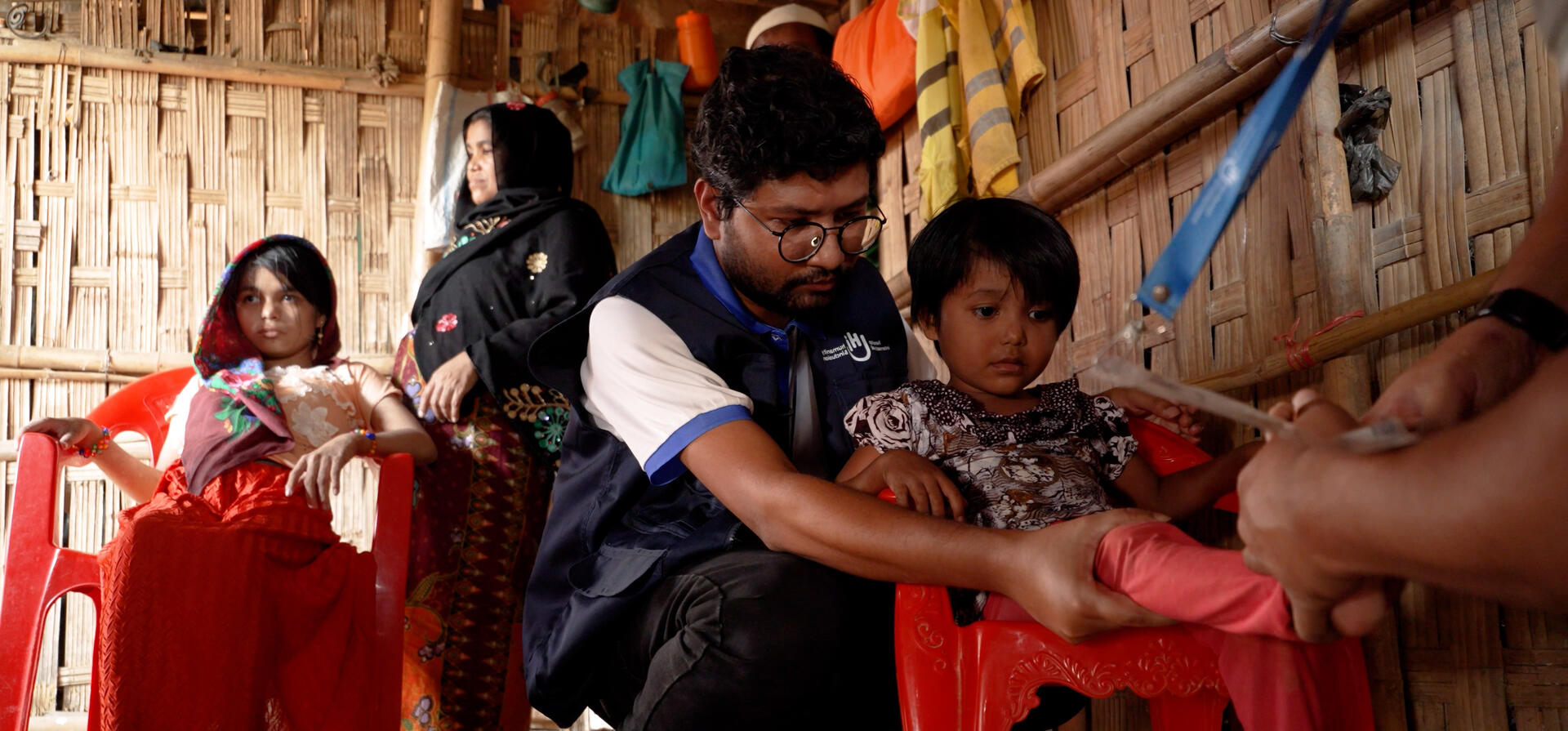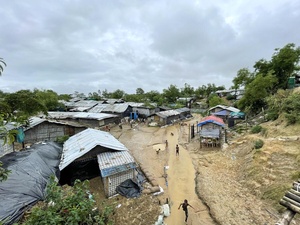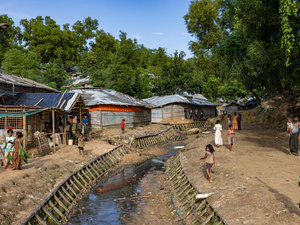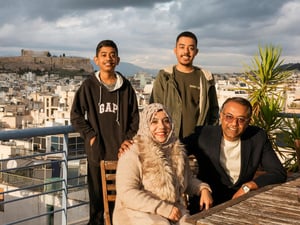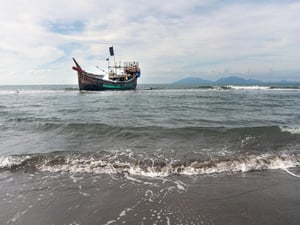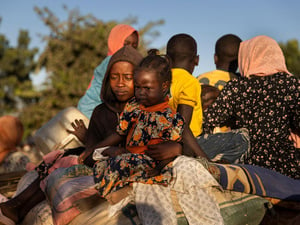Threadbare disability support faces uncertain future in Bangladesh refugee camps
Several times a week, Nur, an 18-year-old refugee with cerebral palsy, crawls for an hour along the dusty or muddy tracks of Kutupalong camp to get from his sweltering shelter to a community centre where he feels included and can pass the time with others.
Navigating the world’s largest refugee camp, host to 650,000 Rohingya who fled Myanmar five years back, is testing for people without any disabilities. But for those like Nur, day-to-day tasks can become all-consuming.
Group sessions at the community centre offer solace, allowing Nur and others in similar situations to share experiences, tips and activities in a safe space.
Nur has been a refugee volunteer since 2019. He likes to take information from the centre out into the community, ideally by sitting in a local shop, where he chats with his neighbours and passes on general information and tips about safety.
“I like to help people,” he said. "I come to the centre, get to know about services and then go to the shop and inform others and help refer them. The shop is less hot, that’s also why I like to sit there.”
"I like to help people."
Days at home are mundane, punctuated by ablutions and eating. He has a wheelchair, but it is of limited use. "Where the roads are good, I use it, but often they aren't and I have to crawl.” Sometimes he hires teenagers to carry him for special outings, like rare visits to the clinic.
Nur was carried over the Naf River border to safety on his father’s shoulders in 2017. When he arrived, he was given a wheelchair and some cash from NGOs, but he says, “life is harder now." Family support has dropped away and he does not currently receive physiotherapy. His immediate hope is for a latrine inside his shelter.

Nur está sentado en una tienda de vegetales en el mercado de Kutupalong, donde divulga información recogida en el centro comunitario local.
A study last year estimated that 12 per cent of the almost 1 million Rohingya refugees in camps in Bangladesh’s Cox's Bazar District are living with disabilities. Those who work with people with disabilities here think the estimate is conservative. Due to the hilly and often muddy terrain, those with disabilities and older people face challenges moving around and accessing services.
UNHCR, the UN Refugee Agency, and its partners, notably Handicap International-Humanity & Inclusion (HI), support with rehabilitation, assistive devices and other services aimed at helping refugees with disabilities to move and live independently. They train other volunteers in inclusion, education around stigma and communication techniques. This aspect of the work is particularly important as the world marks International Day of Persons with Disabilities focusing on empowerment and solutions.
But support for refugees with disabilities in Bangladesh, as elsewhere, is often a low priority in humanitarian responses, and resources in Cox's are threadbare. UNHCR has just one staff member dedicated solely to disability inclusion in Bangladesh.
In a nearby camp, Farida, 31, faces her own hurdles but remains upbeat. In her household of eight, she cares for two daughters – Jubaida, 16, and Sumaia, 5 – with cerebral palsy. Staff say acquired strains of the disease, triggered by infections or head injuries, have been on the rise in the camp. When the family fled persecution in Myanmar in 2017, Farida was pregnant and had to pay others to carry Jubaida for eight days. She is still repaying the debt of about US$100.
HI has adapted the family’s shelter and cleared the pathway. Staff visit the girls twice monthly for physiotherapy sessions, which the family then replicate. They also provide orthotics, when budgets allow, and donated a wheelchair to Jubaida. Sumaia can walk a little with support but would benefit from a frame.
"We all want to go back to Myanmar."
Farida doesn’t ask for much. She wants better access to water, a new, better-adapted wheelchair for Jubaida (the day before she had fallen out of her current model), and new shoes for Sumaia. Farida tries to carve out more time with her daughters. "After the exercise, Sumaia needs to practice walking. But I can’t give her enough due to my household chores."
"We all want to go back to Myanmar,” Farida added. "But we can’t return. It’s unsafe and we also have to manage the girls.”
Jubaida rarely leave home as the terrain is too tricky, so she is unable to attend learning or community centres. Sometimes the family take her to the road where she sits a while.
But HI’s physiotherapy is working, and the prognosis is encouraging. María Carolina Rubio, senior project manager at HI in Cox's Bazar, said: “When we first met Jubaida, she was lying on the floor. She can now sit in her chair and throw objects. We’re confident she’ll be able to walk. She’s getting closer.”
Still, the kind of progress Jubaida is making is in real danger with humanitarian budgets being cut here, as elsewhere.
"What we do with UNHCR is amazing,” said HI’s Rubio. “Together we can transform lives. But we need help to do that.”

